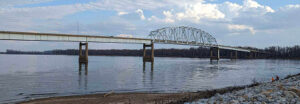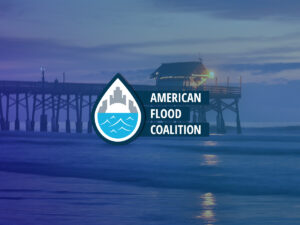
AFC Executive Director on North Carolina State Budget
WASHINGTON, DC — November 16, 2021 — This week, North Carolina Gov. Roy Cooper signed into law the state budget for the next year, which includes the largest investment to address flooding in state history. The American Flood Coalition is thrilled that the North Carolina Legislature made resilience a budget priority.
“North Carolina has experienced multiple 1,000-year floods over the last five years, and many communities across the state are still recovering. Coming off yet another active hurricane season, this budget proposal lays out a comprehensive strategy to address flooding, build resilience, and invest in the future before the next disaster strikes.” – Melissa Roberts, Executive Director and Founder, American Flood Coalition
For more on the North Carolina state budget, read our blog post.
###
About the American Flood Coalition
The American Flood Coalition is a nonpartisan group of cities, elected officials, military leaders, businesses, and civic groups that have come together to drive adaptation to the reality of higher seas, stronger storms, and more frequent flooding through national solutions that support flood-affected communities and protect our nation’s residents, economy, and military installations. The Coalition has over 270 members across 21 states, and has recognized 24 Federal Champions from 10 states.
Cities, towns, elected officials, businesses, and local leaders wishing to join the American Flood Coalition or read more about the organization’s work can visit the Coalition’s website (www.floodcoalition.org) to find out more.
The American Flood Coalition is an IRS Section 501(c)(3) non-profit organization. The American Flood Coalition is not a Congressional Membership Organization and nothing on this website shall be read to imply official sponsorship by either the U.S. House of Representatives or the U.S. Senate or any of their respective Members. Federal Champion is an honorary title awarded by The American Flood Coalition to recognize Members of Congress who have come together to drive adaptation to the reality of higher seas, stronger storms, and more frequent flooding.



